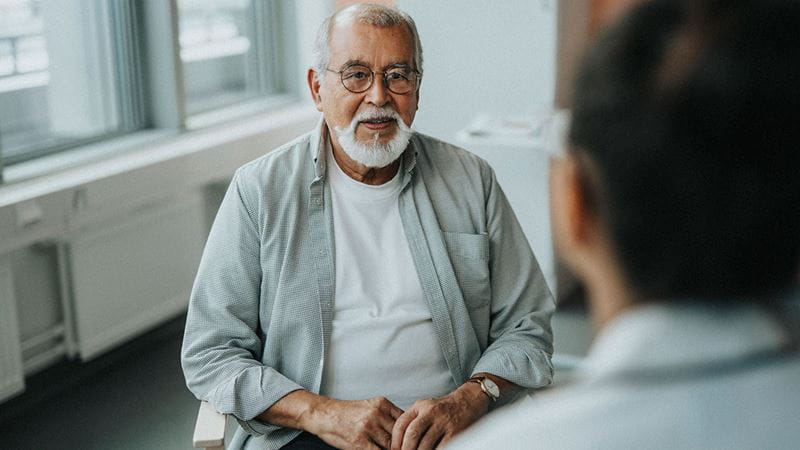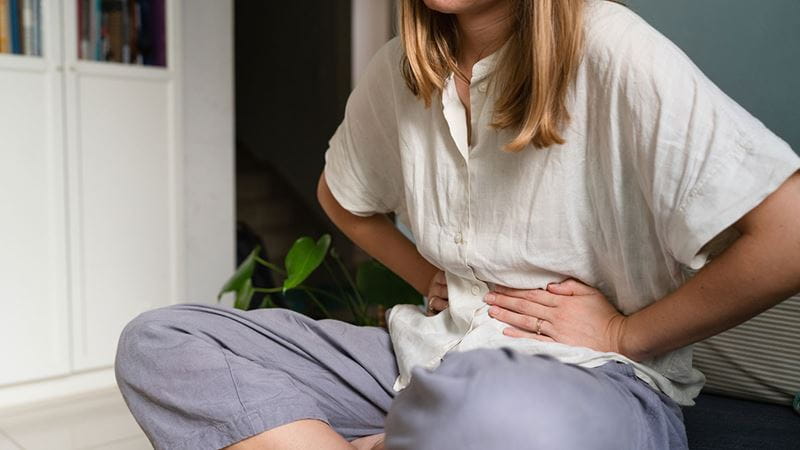Blog article
Colonoscopy explained: What to expect, how to prepare, and when it matters

Whether your GP has recommended one or you’re just curious about what’s involved, knowing what to expect can help ease nerves and ensure the best possible outcome. From preparation and diet tips to what happens during the procedure, this guide covers everything you need to know.
What is a colonoscopy?
A colonoscopy is a medical procedure used to examine the inside of your large intestine (colon) and rectum.
How is a colonoscopy performed?
During a colonoscopy, a specialist uses a colonoscope – a long, thin flexible tube with a tiny video camera and light at the tip. This is carefully inserted through the anus into the rectum and guided through the bowel, allowing the doctor to view the lining of your colon in real time on a screen.1
If necessary, the doctor can also:2
- Remove abnormal growths like polyps
- Take tissue samples (biopsies) for further testing
Why is a colonoscopy performed?
A colonoscopy is one of the most effective ways to investigate symptoms and detect early signs of bowel disease.1 Your doctor or gastroenterologist may recommend a colonoscopy if you're experiencing:3
- Bleeding from the rectum or blood in your stools
- Ongoing changes in your bowel habits (like persistent diarrhoea or constipation)
- Unexplained abdominal pain, bloating or weight loss
- Pus or mucus in your stools
It may also be used:1, 2, 3
- To screen for bowel cancer (especially if you’re aged 45 or over, or have a family history)
- To investigate a positive bowel cancer screening test (like the free test offered through the National Bowel Cancer Screening Program)
- To monitor or treat conditions such as inflammatory bowel disease (IBD), diverticulitis, or anal fissures
- To check for or remove polyps, which can develop into bowel cancer over time
- To follow up on previous colonoscopy findings
- Or, in some cases, to deliver treatment directly (such as placing a stent or removing an object)
If you have a higher genetic risk – such as Familial Adenomatous Polyposis (FAP) or Lynch syndrome – you may need regular screening colonoscopies. Your GP or specialist can help guide what’s right for you.2
Colonoscopy prep: What you need to know
To get the best results from your colonoscopy, your bowel needs to be completely empty. That means following a special prep routine, usually starting a few days before.
Your doctor will provide specific instructions, but it usually involves:4
- Eating a low-fibre diet for a few days (no wholegrains, seeds, raw fruit or veg)
- Switching to clear liquids only the day before
- Taking a bowel prep drink to help clear your bowel (often in two parts: the night before and the morning of)
Always read your instructions at least two weeks in advance, especially if you take medications like blood thinners, or have diabetes, kidney, or heart conditions.
Day-before diet tips
On the day before, you’ll switch to clear liquids only. You’ll need to stay close to a toilet once the prep starts working.4
This can include:5
- Clear broth or strained miso soup
- Water, clear apple or white grape juice (no pulp)
- Sports drinks, soft drinks, or electrolyte solutions
- Black tea or coffee (no milk)
- Lemon or orange jelly (no red, purple or blue varieties – this can be mistaken for blood during your colonscopy)
- Ice blocks or clear popsicles (again, avoid red/purple dyes)
Continue drinking plenty of clear fluids right up until your doctor tells you to stop (usually two hours before the procedure). Staying hydrated helps the bowel prep work more effectively – and helps you feel better, too.5
How long does a colonoscopy take?
The colonoscopy itself usually takes about 20 to 30 minutes. You’ll also spend some time in recovery – usually around two hours – while the sedation wears off.6
Because of the sedation, you won’t be able to drive yourself home, so make sure to arrange for a friend or family member to pick you up.
Does a colonoscopy hurt?
Most people are given sedation during a colonoscopy, so you’ll be relaxed and likely won’t feel or remember much. Even if the doctor removes tissue or polyps, your bowel doesn’t feel itching or burning sensations, meaning no pain will be felt.3
Afterwards, it’s normal to feel a bit bloated or gassy from the air used during the procedure. This should pass quickly. If you have strong pain, heavy bleeding, or feel unwell after your colonoscopy, call your doctor straight away.3
Can you have a colonoscopy during pregnancy?
Colonoscopy during pregnancy is generally avoided unless absolutely necessary.7
I have ongoing constipation, will a colonoscopy help?
Not always. If you're under 50 and your only symptom is ongoing constipation, research shows a colonoscopy often isn't helpful. In fact, people with chronic constipation (and no other warning signs) may be less likely to have serious issues like polyps.8 Since colonoscopies carry risks (expanded on below) having one unnecessarily may do more harm than good.9
Colonoscopy for longstanding constipation in people under 50: Is it necessary?
What are the risks associated with a colonoscopy?
Serious complications are rare, but can include bleeding, sedation complications, and, in rare cases, a tear in the colon.9 See your doctor straight away if you have a fever, bad stomach pain, heavy bleeding, ongoing vomiting, or feel very unwell.
Colonoscopy isn’t perfect – in rare cases, some issues may be missed – but it’s still the most accurate way to check for bowel cancer.1
Cost of a colonoscopy (with and without insurance)
If you’re having your colonoscopy in a public hospital, it may be free or low-cost, depending on your eligibility for Medicare. Just be aware that wait times can be long, especially for non-urgent cases.
In the private system, costs can vary depending on your cover, the provider, and where the procedure is done. According to government data, 74% of privately insured patients paid nothing out of pocket. Among the 26% who did, the typical out-of-pocket cost was $200.10
These figures don’t include hospital fees, which may include accommodation, theatre, or medical devices, and are usually around $750 for a colonoscopy. Your private health insurer often covers most or all of this, but you may need to pay an excess or co-payment, depending on your level of cover.10
How can HBF help
If you need a colonoscopy, HBF is here to help. Log in to myHBF or call 133 423 to check your benefits. You can also find a participating provider using our online tool.


